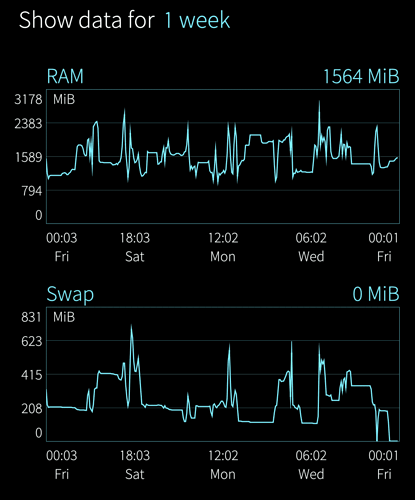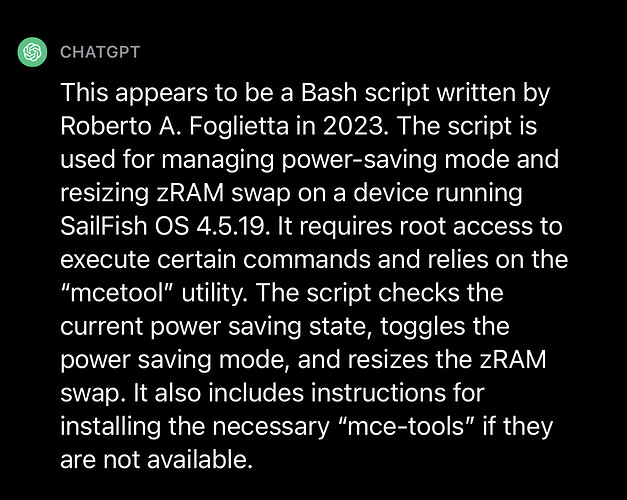Jolla already ships a 1G zram configuration out of the box, so they are very aware of our RAM limitations.
AFAICT the primary strategy has really boiled down to
- On X10II,
zramsize=3221225472, or 3x stock - parity with ecosystem best practices Changes/Scale ZRAM to full memory size - Fedora Project Wiki - Add swapfile for further insurance Low memory, apps crashing - change zram settings or add swapfile? [4.x] - #22 by Schrdlu
- I added
bs=1M count=4096for 4G on/home/swapfile - below zram priority
swapon -p -3 /home/swapfile, confirmed bycat /proc/swaps
- I added
Today’s daily driver experience has been really good so far
- I have 13 apps open, incl. Browser
- Lighthouse shows 1G memory free, while 1G/7G swap is used
- phone is still super responsive to every move I make in all apps
Swap stats probably signal “overkill”, but let’s see how this play out after a few days of heavy workweek. Stay tuned for updates.




